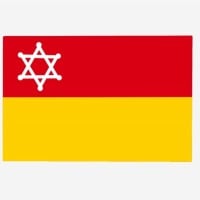Top 10 Languages that Should Be Added to the Duolingo Incubator in the 2020s
Duolingo is one of the best language-learning apps out there. It's really efficient, really addictive, and overall just amazing. I made a list about how great it is. One thing I love about it is the amount of languages you can learn with it. There are 33 languages for English native speakers! However, there are still some important languages left that need to be added in the next decade.We saw some progress in 2019. In that year, three new languages were added to the incubator for English speakers: Latin, Finnish, and Scottish Gaelic. Additionally, three language courses for English speakers were completed: Arabic, Latin, and Scottish Gaelic. On top of that, the progress of the Finnish and Yiddish courses has boosted significantly. Haitian Creole still remains untouched, though.
At this rate, we might get a lot of languages added to the incubator. With that being said, here are my most wanted languages to be added to the Duolingo incubator.
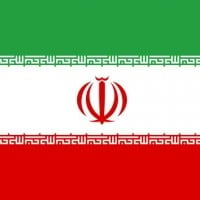
I always want to learn this fascinating and beautiful language. This language has a long history dating back to ancient times. It has 2000 years of history since the Persian Empire.
The fact that Persian is not an available language to learn on Duolingo probably comes as the biggest shock to people new on Duolingo. I mean, it's one of the world's biggest languages, the mother tongue of the Persians, the ancestors of some of the greatest empires ever, the Persian empires (like the achaemenid and parthian). Like seriously this would've been #1 if Lithuanian didn't exist.
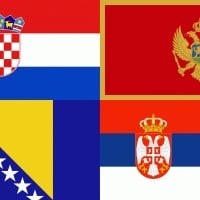
There are so many Germanic and Romance languages on Duolingo, like German, Dutch, Norwegian, Portuguese, and even Romanian! These language branches seem to dominate in terms of Indo-European (IE) languages. But what about Slavic languages? It turns out that not many of them exist, except for the three biggest, plus the fifth biggest ones: Russian, Polish, Ukrainian, and Czech.
But what about the fourth biggest language? Well, it's complicated. It's either Serbian or Serbo-Croatian, depending on your perspective. There are four languages in the Balkans (Serbian, Croatian, Bosnian, and Montenegrin) that are closer than the Nordic languages, but the speakers of each language insist they are separate languages. If one of these languages gets added to Duolingo, speakers of the other languages will get mad.
Come on now, this family represents the fourth biggest Slavic language, and there are no South Slavic languages added yet. I'd suggest that adding Croatian is the best choice, as it's the second biggest of the variants and uses a Latin script.
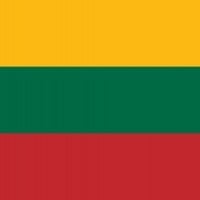
I need Duolingo to add this amazing-sounding language. It's just amazing. I've been trying to find sources to learn Lithuanian, but no website does it better than Duolingo. That's why I want it! It's such a shame the Duolingo Incubator isn't available any longer. Maybe if it were still available, there would be more Lithuanians interested in contributing. But the only unique thing that Duolingo had has died.
There is no language I crave more to be added to Duolingo than Lithuanian itself. This language is just legendary and amazing. There are a number of reasons I want to see this language added. Personally, I am half-Lithuanian and I really want to learn my mother tongue. As of now, I only speak Swedish, English, and some Esperanto. But there are so many other reasons for having this language on Duolingo.
The Baltic branch of the Indo-European language family is the most archaic of the bunch, and Lithuanian itself is the most conservative Indo-European language to date. It even retains features from Proto-Indo-European and Sanskrit! The grammar is one of the hardest in the world for an English speaker, even surpassing languages like Japanese or Chinese. Yes, I know this language isn't widely spoken, but all of these reasons should make a strong case for Lithuanian to be on Duolingo.
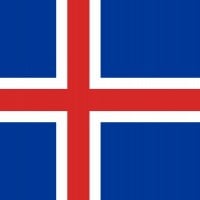
Icelandic hasn't changed much in a thousand years - it's the closest you can come to learning Old Norse as a living language. How cool is that?
I want to visit Iceland because it's such a beautiful country, and it would be amazing if I could speak to them in their language!
Icelandic is the closest language to Old Norse, and more resources need to be available for it, as it is also a language that not many people speak.
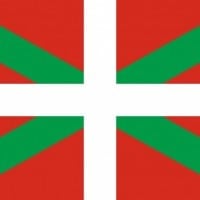
It's the native language of my city and one of my favorite ones. Also, I think it's one of the most important languages to conserve here in Europe because of its history and uniqueness. It's a very unique language that needs to be learned around the world.
The Basque language is the most famous example of a language isolate, a language with no other known relatives. This alone makes it a worthy contender for getting added to Duolingo. It's spoken by the Basque people in the Bay of Biscay, in an area stretching across the Basque Nation. This comprises the two Spanish autonomies of Basque Country and Navarra, as well as French Basque. Honestly, just the fact that it's a language isolate makes this language deserve a spot on Duolingo.
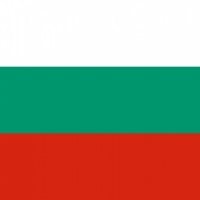
This will be a great resource for people wanting to learn the Bulgarian language. I am a person of Bulgarian descent and would love to learn more about this language, especially the correct way to speak it. I sometimes forget some of the letters, so using Duolingo to listen to the letters and learn how to write them would be great.
I want to teach my future children how to speak, read, and write in Bulgarian, and Duolingo would be a great place to start. Also, the fact that Bulgaria will soon fully adopt the Euro means that more people will visit the country. If more people knew the language, it would be easier for them to explore the smaller towns and integrate into the country if they decide they want to move there.
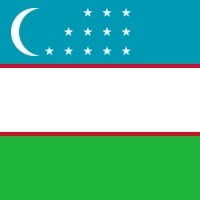
We have an overabundance of Indo-European languages on Duolingo. This is not a problem in my opinion, but it would certainly be nice to include languages from other language families, such as Turkic. We already have Anatolian Turkish, the largest of the Turkic languages. The second largest is Uzbek, unless you consider Azeri to be a separate language from Turkish.
Uzbek is spoken in Uzbekistan, the most populous country in Central Asia. Historically, it was an important trade center for the Silk Road, boasting amazing cities like Samarkand, Buchara, and Chiva. Some might argue that Uzbek is similar to Turkish, but many North Germanic languages, except Icelandic, are already on Duolingo, and they are even more closely related! I can understand Norwegian like a native!

I've heard about this language many times during my life, and I'm curious about learning it. Also, I think it's an important language to expand around the world.
Beautiful culture. I'm glad New Zealand loves its Maori culture. I wish Australia embraced its Aboriginal cultures and languages more.
Maori was voted as the most wanted language to be added to the Duolingo Incubator in 2019, even surpassing those like Latin, Finnish, and Scottish Gaelic that actually did get added that year. This alone honestly speaks for itself. On top of that, it would be nice to have another non-European language. Please add it soon!
EDIT: It's been added now, along with Yucatec and K'iche'.
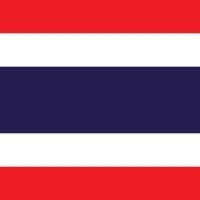
We have a handful of Asian languages already, like Chinese, Japanese, Korean, and Vietnamese, so why not Thai as well? I know that here in Sweden, Thailand is one of, if not the most, popular tourist destinations. Everyone goes crazy about it. And I think it's popular in other countries too. Really, just add it. We don't have many Asian languages, so it's time for another one, am I right?
This language is the one I am most surprised is not on Duolingo. It is on Pimsleur, but Rosetta Stone discontinued the Thai course. There are so many foreigners in Thailand. This would be a very popular course!

My favorite language family is the Uralic one. I have been learning Hungarian and Finnish, so Estonian would be a great third language. It could also be an invitation for other Uralic languages to be added in the future.
I really want to learn this language. I definitely will learn it if it gets added.
The Newcomers
Because I think it's a cool language and I'd love to learn it (plus everyone I work with speaks it)
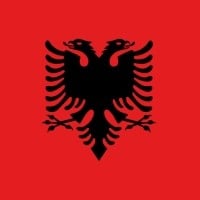
Beautiful country for holidays. Very welcoming people, so language skills can be used.
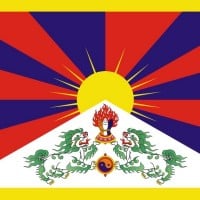
Mandarin Chinese has been my main target language for many years. I feel I have a solid HSK5 level in it, and although I want to improve to HSK6 and beyond, I am also interested in expanding my knowledge of the Sino-Tibetan languages. I am planning to do the Cantonese course first, and after that, either a Tibetan or Burmese course would be amazing.
The Tibetan language is important for spiritual purposes. It is also in danger because of the oppression from the CCP.
I have a few friends from this country, and I have a great interest in learning the language. I want to go to the country and there is no proper way to learn the language online.

I love everything about African culture, music, and languages. I've tried to learn it before but it's difficult to find a place where you can learn it. I think it would be amazing to learn it with Duolingo's method.
So many people around the world, especially in America, are of Yoruban descent. We need more African languages on Duolingo. This is the one I suggest the most out of all African languages. We already have Zulu, and they're working on Xhosa, but there needs to be more languages from other areas of the continent of Africa. Twi is also a language that should be added.
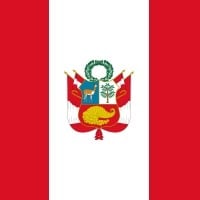
The Quechua language, or Runasimi, is a very important language that is losing its power. Adding it could help with some cultural preservation and promote more linguistic diversity.
We need more Native American languages, and it is quite difficult to learn Quechua as it is. It would be very useful to have more resources publicly available.
Quechua and Aymara are common and useful native languages, especially in Bolivia and Peru, but they are hard to learn only from books, and very little is available online.

Well, adding this language could help to preserve indigenous languages and promote cultural exchange. It would make this type of language more accessible to people.
I would love to learn Yucatec. I know there are some other languages that they will want to add first, but I think it would be a great addition.
This is a Mayan language spoken in Mexico, on the Yucatan Peninsula. It's not the biggest of the Mayan languages but it did get added to the incubator. Although I would have preferred to see a larger language get added beforehand, at least it's not a fictional language.
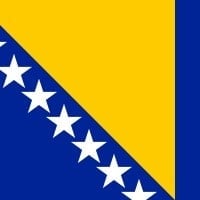
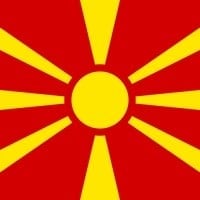
My grandmother is Macedonian. I would love to speak to her one day in my family's language.
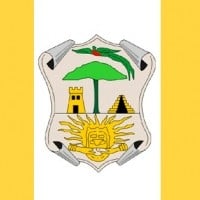
K'iche', or Quiche, is a very interesting and complex language that would be an interesting challenge for people who want to learn difficult things. Originally, K'iche' was written using the Mayan hieroglyphic script, but nowadays they use the Latin alphabet. It would be amazing if you could teach both and preserve a native language and an ancestral script.
See my comment for Yucatec. K'iche' also got added to the incubator and is a Mayan language. This one, however, is the largest Mayan language, spoken mostly in Guatemala.

This is the language I want the most. It is so beautiful and melodic, and it's the most beautiful language I have ever heard. Please add it!
I mean, come on, you don't understand how many nerds will come running towards the app (me included) just to learn this language. I would love to know what the people are saying in the movies, and it will be fun to speak it with other people around the world.
I have some irrational affinity with artificial languages. Of the fictional ones, I am most interested in Na'vi, which would also be a great addition to Duolingo once Avatar 2 comes out, as it will attract many fans. I also really want to learn Lojban and Volapük. I have little hope for them, but because Esperanto is out there and we're now discussing artificial languages, I just mention it.
Neo-Sindarin could be added as the Elvish language. There is a community of people dedicated to Neo-Sindarin, and I have no doubt an Elvish language would be massively popular on Duolingo.
For this one, I actually voted for someone else: my sister. I am so proud that she finally started to use Duolingo and just completed her first-week streak. She is learning Latin because she is interested in history and archaeology, which she even plans to study. She said that she wants to learn Koine Greek as well. Personally, I am currently learning modern Greek, but this would be a great addition to motivate my sister even more and get her into language learning.
I just wish to have a proper rivalry in the fight between Beijing and Shanghai!
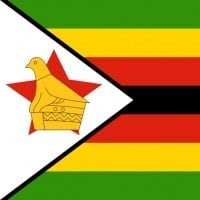

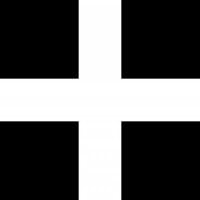
Cornish is literally a revived language, and putting it on Duolingo could ensure that it doesn't die again.
We need to save this language for the ancestors.
